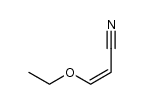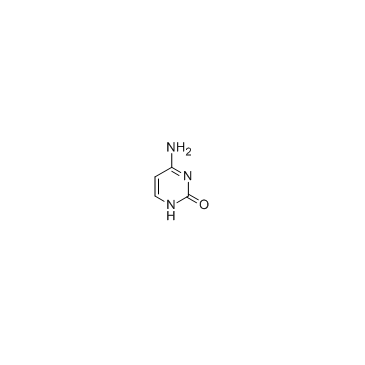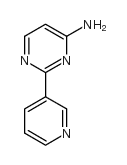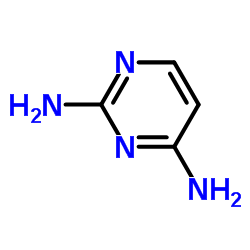3-ethoxyacrylonitrile
Modify Date: 2025-09-18 16:57:19

3-ethoxyacrylonitrile structure
|
Common Name | 3-ethoxyacrylonitrile | ||
|---|---|---|---|---|
| CAS Number | 58243-08-6 | Molecular Weight | 97.11520 | |
| Density | 0.944 g/mL at 25ºC(lit.) | Boiling Point | 90-91ºC19 mm Hg(lit.) | |
| Molecular Formula | C5H7NO | Melting Point | N/A | |
| MSDS | N/A | Flash Point | 179 °F | |
| Name | 3-ethoxyacrylonitrile |
|---|---|
| Synonym | More Synonyms |
| Density | 0.944 g/mL at 25ºC(lit.) |
|---|---|
| Boiling Point | 90-91ºC19 mm Hg(lit.) |
| Molecular Formula | C5H7NO |
| Molecular Weight | 97.11520 |
| Flash Point | 179 °F |
| Exact Mass | 97.05280 |
| PSA | 33.02000 |
| LogP | 1.06018 |
| Index of Refraction | n20/D 1.454(lit.) |
| InChIKey | HUPVIAINOSTNBJ-HWKANZROSA-N |
| SMILES | CCOC=CC#N |
Synonym: Section 2 - COMPOSITION, INFORMATION ON INGREDIENTS
Risk Phrases: 10 22 Section 3 - HAZARDS IDENTIFICATION EMERGENCY OVERVIEW
Flammable. Harmful if swallowed. Potential Health Effects Eye: May cause eye irritation. Skin: May cause skin irritation. May be harmful if absorbed through the skin. Ingestion: Harmful if swallowed. May cause irritation of the digestive tract. Inhalation: May cause respiratory tract irritation. May be harmful if inhaled. Chronic: Not available. Section 4 - FIRST AID MEASURES Eyes: Flush eyes with plenty of water for at least 15 minutes, occasionally lifting the upper and lower eyelids. Get medical aid. Skin: Get medical aid. Flush skin with plenty of water for at least 15 minutes while removing contaminated clothing and shoes. Ingestion: Get medical aid. Wash mouth out with water. Inhalation: Remove from exposure and move to fresh air immediately. If not breathing, give artificial respiration. If breathing is difficult, give oxygen. Get medical aid. Notes to Physician: Section 5 - FIRE FIGHTING MEASURES General Information: As in any fire, wear a self-contained breathing apparatus in pressure-demand, MSHA/NIOSH (approved or equivalent), and full protective gear. Will burn if involved in a fire. Flammable liquid and vapor. Extinguishing Media: Use water spray, dry chemical, carbon dioxide, or chemical foam. Section 6 - ACCIDENTAL RELEASE MEASURES General Information: Use proper personal protective equipment as indicated in Section 8. Spills/Leaks: Absorb spill with inert material (e.g. vermiculite, sand or earth), then place in suitable container. Remove all sources of ignition. Use a spark-proof tool. Section 7 - HANDLING and STORAGE Handling: Use spark-proof tools and explosion proof equipment. Avoid breathing dust, vapor, mist, or gas. Avoid contact with skin and eyes. Storage: Keep away from sources of ignition. Store in a cool, dry place. Store in a tightly closed container. Flammables-area. Section 8 - EXPOSURE CONTROLS, PERSONAL PROTECTION Engineering Controls: Use adequate general or local explosion-proof ventilation to keep airborne levels to acceptable levels. Exposure Limits CAS# 58243-08-6: Personal Protective Equipment Eyes: Not available. Skin: Wear appropriate protective gloves to prevent skin exposure. Clothing: Wear appropriate protective clothing to prevent skin exposure. Respirators: Follow the OSHA respirator regulations found in 29 CFR 1910.134 or European Standard EN 149. Use a NIOSH/MSHA or European Standard EN 149 approved respirator if exposure limits are exceeded or if irritation or other symptoms are experienced. Section 9 - PHYSICAL AND CHEMICAL PROPERTIES Physical State: Clear liquid Color: light yellow Odor: Not available. pH: Not available. Vapor Pressure: Not available. Viscosity: Not available. Boiling Point: Not available. Freezing/Melting Point: Not available. Autoignition Temperature: Not available. Flash Point: 50 deg C ( 122.00 deg F) Explosion Limits, lower: Not available. Explosion Limits, upper: Not available. Decomposition Temperature: Solubility in water: Specific Gravity/Density: Molecular Formula: C5H7NO Molecular Weight: 97.12 Section 10 - STABILITY AND REACTIVITY Chemical Stability: Stable under normal temperatures and pressures. Conditions to Avoid: Incompatible materials, ignition sources. Incompatibilities with Other Materials: Strong oxidizing agents, bases. Hazardous Decomposition Products: Hydrogen cyanide, nitrogen oxides, carbon monoxide, carbon dioxide. Hazardous Polymerization: Will not occur. Section 11 - TOXICOLOGICAL INFORMATION RTECS#: CAS# 58243-08-6 unlisted. LD50/LC50: Not available. Carcinogenicity: trans-3-Ethoxyacrylonitrile - Not listed by ACGIH, IARC, or NTP. Section 12 - ECOLOGICAL INFORMATION Section 13 - DISPOSAL CONSIDERATIONS Dispose of in a manner consistent with federal, state, and local regulations. Section 14 - TRANSPORT INFORMATION IATA Shipping Name: FLAMMABLE LIQUID, N.O.S.* Hazard Class: 3 UN Number: 1993 Packing Group: III IMO Shipping Name: FLAMMABLE LIQUID, N.O.S. Hazard Class: 3 UN Number: 1993 Packing Group: III RID/ADR Shipping Name: FLAMMABLE LIQUID, N.O.S. Hazard Class: 3 UN Number: 1993 Packing group: III Section 15 - REGULATORY INFORMATION European/International Regulations European Labeling in Accordance with EC Directives Hazard Symbols: XN Risk Phrases: R 10 Flammable. R 22 Harmful if swallowed. Safety Phrases: S 16 Keep away from sources of ignition - No smoking. WGK (Water Danger/Protection) CAS# 58243-08-6: No information available. Canada None of the chemicals in this product are listed on the DSL/NDSL list. CAS# 58243-08-6 is not listed on Canada's Ingredient Disclosure List. US FEDERAL TSCA CAS# 58243-08-6 is not listed on the TSCA inventory. It is for research and development use only. SECTION 16 - ADDITIONAL INFORMATION N/A |
|
~% 
3-ethoxyacrylon... CAS#:58243-08-6 |
| Literature: Sakakibara, Yasumasa; Enami, Hiroji; Ogawa, Hiroshi; Fujimoto, Shinpei; Kato, Hiroyuki; et al. Bulletin of the Chemical Society of Japan, 1995 , vol. 68, # 11 p. 3137 - 3144 |
|
~% 
3-ethoxyacrylon... CAS#:58243-08-6 |
| Literature: Scotti,F.; Frazza,E.J. Journal of Organic Chemistry, 1964 , vol. 29, p. 1800 - 1808 |
| 3-ethoxy-acrylonitrile |
| 3-Aethoxy-acrylonitril |
| 3-EAN |
| 3-ethoxy-acrylonitril |
| 3-ethoxy-2-propenenitrile |
| trans-3-ethoxy-acrylonitrile |
| 3-Ethoxyprop-2-enenitrile |
| 3-Ethoxyacry |
| 3-ETHOXYPROPENENITRILE |
| usafkf-27 |





 CAS#:71-30-7
CAS#:71-30-7 CAS#:61310-31-4
CAS#:61310-31-4![1-Oxaspiro[3.5]nona-5,8-diene-3-carbonitrile,2-ethoxy-7-oxo-,trans-(9CI) structure](https://image.chemsrc.com/caspic/438/137378-90-6.png) CAS#:137378-90-6
CAS#:137378-90-6 CAS#:156-81-0
CAS#:156-81-0